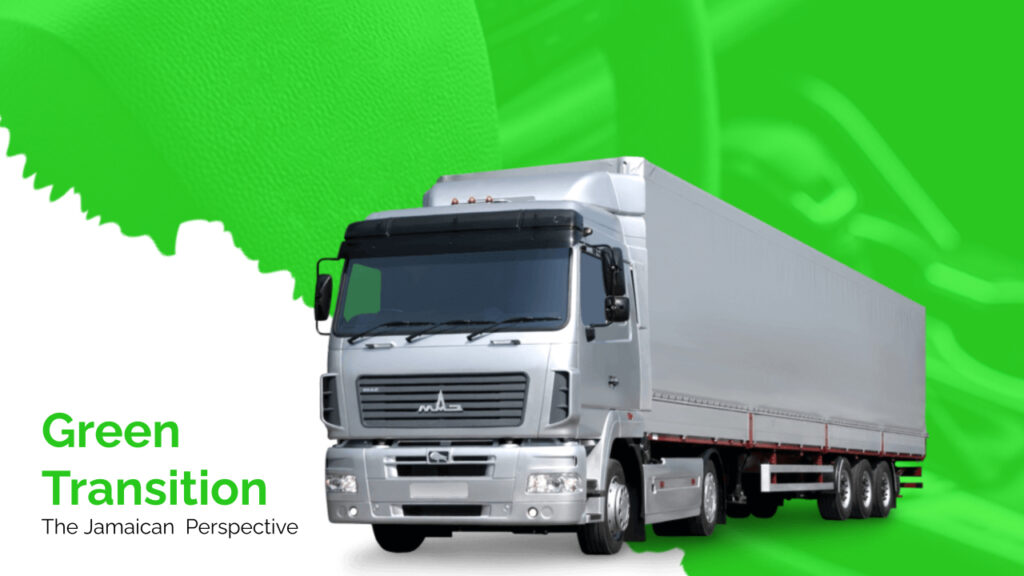
For many fleet operators, “going green” often means replacing diesel or gasoline-powered vehicles with electric ones. The benefits of EVs of such as lower maintenance costs and zero fuel expenses are undeniably appealing. However, in Jamaica, the transition to EVs presents significant challenges for diesel fleets. This article aims to address how diesel fleets can go greener while saving money with proven strategies to cut emissions, boost efficiency, and reduce costs.
The availability of medium to heavy-duty electric vehicles is limited, and the few options on the market come with hefty price tags. On top of that, Jamaica’s charging infrastructure, particularly for fast charging, is still underdeveloped, making large-scale EV adoption impractical for most businesses in the near future.
But going green doesn’t have to mean going electric—at least not right away. There are practical and cost-effective ways for companies to reduce their environmental impact without the financial strain of switching to EVs. By implementing smarter fuel management, adopting eco-friendly driving practices, and integrating advanced vehicle security and tracking systems, businesses can improve efficiency, lower emissions, and take meaningful steps toward sustainability today.
Idling is one of the most overlooked yet costly habits in fleet management. It not only wastes fuel but also increases vehicle wear and tear, inflates operational costs, and contributes significantly to air pollution. While the transition to fully electric fleets may not be feasible for many companies, there are practical ways to reduce environmental impact and save money—starting with idle management.
Idling Costs Millions Each Year
A typical six-cylinder diesel vehicle burns approximately 3.6 liters of fuel per hour while idling. With diesel fuel in Jamaica averaging $185 per liter, this translates to $666 per hour per vehicle being wasted. For larger fleets, these numbers quickly become staggering.
Consider a company operating 50 diesel vehicles, each running 10 hours per day with an idle time of 50%. Assuming an average of 6 cylinders per vehicle, the fleet wastes nearly 900 liters of fuel per day—equating to $166,500 JMD daily.
Over a year (operating five days a week for 48 weeks), this amounts to:
216,000 liters of wasted fuel
$39.96 million JMD in unnecessary costs
480,000 kg of carbon emissions released into the atmosphere
The Misconception About Idling
Many drivers and fleet operators believe that keeping a diesel engine running is more cost-effective than turning it off and restarting. While this may be true for very short stops (under 10 minutes), anything beyond that leads to excessive fuel waste and higher maintenance costs due to increased engine wear.
Reducing idle time from 50% to 30% of operating hours can result in savings of over $13 million JMD per year.
Simple Changes for a Greener Fleet
To curb idling and its associated costs, fleets can implement several strategies:
- GPS Tracking & Alerts: Install GPS tracking systems to monitor idling and send alerts when a vehicle exceeds a set idle threshold.
- Driver Notifications: Use external buzzers or LED indicators connected to GPS tracking units to remind drivers to shut off engines.
- Auxiliary Power Units (APUs): For larger vehicles like tractor-trailers, APUs provide power without requiring the main engine to run.
- Start/Stop Technology: Equip vehicles with start/stop systems that automatically turn off the engine when stationary.
- Enforce Idle Reduction Policies: Encourage drivers to turn off the engine if idling for more than 10 minutes.
Making Diesel Fleets More Sustainable
Despite diesel remaining a dominant fuel source for transportation, construction, and agriculture in Jamaica, businesses can still take action to reduce greenhouse gas emissions, cut fuel costs, and extend vehicle lifespan.
SmartTrack Limited provides fleet analytics that help companies monitor, manage, and minimize idling—resulting in significant cost savings and a reduced carbon footprint. A few small changes in fleet management habits can translate into millions saved and a greener future for all.